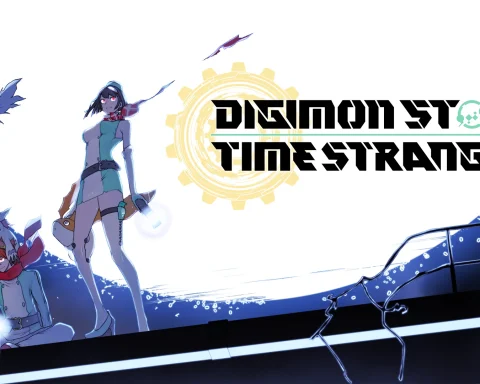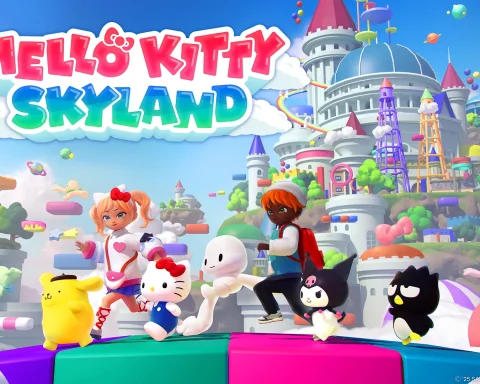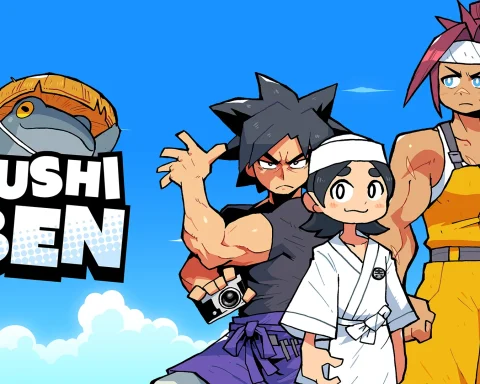“What are we going to see introduced in next-gen consoles?” It’s the million-dollar question that the entire industry has been speculating on, and curiosity does not die so easily – especially when it comes to a topic as vital as this.
The time for the industry to see a new beginning is drawing nearer and as a result, the direction we will be headed with this evolution lies in what features take off in the next-gen consoles. Significantly, the question of what Sony, Microsoft and Nintendo decide to present as their contributions into the next era of gaming will also extend far beyond the satisfaction (or possible lack, thereof) of gamers. No, given the current state of the industry, these outlets will propose a huge impact on the decisions, productivity and benefit of developers and publishers alike – of all tiers of developers. This, boys and girls, is why we must ponder upon what we truly want to see amount from the next generation.
One of the main evolutions that came with the current-gen was the introduction of HD entertainment to gaming. While in retrospect it has served to be one of the most significant advances in gaming, it also served to perhaps be a premature push in big technology that heavily impacted both consumers and, most importantly, developers. It is a dreadfully costly endeavour, complex to disseminate during development and it was initially a difficult task to utilise efficiently.
Consequently, should the platform holders decide to extensively upgrade the consoles again next generations, it would isolate virtually all prospective mid-tier and independent developers, while leaving the rest of the industry with increasingly expansive AAA budgets. That’s critical – those AAA-budget developers will become significantly risk-averse to the point of unproductive confinement within their games. The result? The next generation of consoles will become overwhelmingly extortionate and barren platforms.
So, given the current state of the industry both financially and in terms of progression with game development (or current lack, thereof), repeating the upgrade path with the next-gen cycle would not be a wise move for the industry as it is right now – it would, in fact, be a momentous detriment to it.
An additional concern that we’ve seen come from the current-gen is the ongoing departure of mid-tier development from the industry. As AAA development budgets are becoming increasingly expansive and leading to developers being risk-averse so as to not alienate fans; that means all the mainstream innovation and experimenting somewhat rests on the shoulders of those disappearing mid-tier developers.
With games like Dark Souls, Persona and Cyanide’s games, for a few examples, it is evident that this tier of development notably contributes to an ample part of the industry. Conversely, the industry is noticeably proving to be a hostile environment for many of these developers to exist (examples being the respective developers of Nier and Kingdoms of Amalur), and the importance of these developers is seemingly going disregarded by the gamers (after all, if these games sold well enough the developers would still be here). It’s distressing, to say the least, that a great deal of the novelty in gaming currently lies unrewarded in the efforts of mid-tiers.
The priority of next-gen consoles should not lie in introducing massive improvements that will not generate any kind of creative thought in game development. The constant push for visual fidelity and dynamic power in games and consoles is just becoming too much of an expensive feat for triple-A games, and is an unreachable duress for most middle-tier games and it’s just completely unsustainable for the industry as a whole.
Next-gen platforms desperately need to concentrate on making console development easier, more accessible and cost-efficient – a progression that will enable platforms to be accessible to developers of all ends, especially the mid-tiers and indies, while calling for a reality-check in triple-A franchise developers. But most important of all, these platforms need to use all this to further initiate innovation from game development – introducing something new to the industry in terms of gameplay.
Remember how the Wii revolutionised gaming by pioneering motion controls? It certainly made a mark in the industry, to the point where we also had the PlayStation Move and Xbox Kinect joined in later on. It did change the way we play games, and it did push many developers to be inventive with their games on the platform.
This kind of ingenuity on a platform with developers pouring into the system is what the next generation needs. Not more graphical prowess, not more “powerhouse” competition, but fresh experiences bursting out the seams – next-gen consoles need to prove how advanced they are using intuition, not expense. The bottom line? This industry needs renewal. As I said in the beginning of this article, we need to think exceptionally carefully on what we truly want to see amount from the upcoming generation; it just might cost the industry a whole new crash if the wrong decision is made this time around.
– Farida Y








better physics and AI would open new possibilities to gameplay and it would enhance gaming more than any gimmick could. And to all those mid-tier and indies, well, they should rely more on art-style and sell their games at a lower price than triple A games (like $40?). That would be a really big incentive for people to pick up their games instead of a Triple A shooter. Another thing is that console manufactures are focusing on creating systems that are easier to make games on so gaming budgets should be going down at least a little bit. So no more PS3 headaches to the devs,
Problem solved.
wtf is this article on about?
atlus, is doing just fine as a dev
Just shut the fuck up. The first thing we want for Next Gen is Graphics ! PPl had said that we'll never get satisfied by better graphics ! that's very wrong, we had not been satisfied by graphics ! In my case, I had waited generations to see gameplay graphics with quality like the ones in FF XIII CGI ! when that time comes, I'll agree with you. As for creativity in gameplay, that had always been the priority and developers always find interesting ways to introduce it in the past, however, we see that less this gen simply because 2 things happened in this gen: COD and developers emphasis on linear and scripted cinematic experience
Hi Benson,
First up, thanks for your input – much appreciated.
We have moderated a part of your comment, though. As per our comments policy, we don't appreciate offensive language here. It's more than possible to get your point across without being rude – the parts of your comment I removed didn't change the context of what you said in any way, so while I would like to believe that now you've discovered us, you'll hang around to share your opinions in the future, I would appreciate it if you moderated yourself next time.
Thanks for understanding!
No one said anything about Atlas.
persona was mentioned, thats atlus
"Want" =/= "Need". You may really want extremely convincing and realistic gameplay graphics, but this article is stating that graphics advancement is not what the games industry needs.
Also, opening a argument with "F*** YOU!!!" is not a good way to argue…well, anything.
Just out of interest, which developer are you an executive manager for? It would be great to get your input into the coatings and profitability in modern game development.
The point of this article (and one I happen to agree with) is that the spiralling development costs for what is seen to be a 'AAA' game needs to stop. If we're going to see this industry develop into one that people take seriously as a creative outlet, then we need to see games from smaller teams end up with the same critical praise as the guys working in the big development studios. This happens in film, literature and music because the indies have access to the same stuff the big studios do, more or less. But in the games industry unless you're making an AAA game, you're going to be critically and commercially slammed.
The occasional exception to the rule (From Software) does not disprove the rule. The basic point of this article is that there is a concern that the next generation of consoles is going to be prohibitively hostile to mid tier and indie development, and if you were involved in the industry it is a concern you would share.
Thanks for the input!
What I meant was, no one is saying Atlas is in trouble. In fact the article is pointing out that Atlus is the exception to the rule.
The list of mid-tier developers and publishers that has either disappeared or is in dire straights is far longer than the list of mid-tier developers and publishers that is doing fine. That is the point.
Lots of good points there. Higher def isn't what I personally mean by 'better graphics' though. Just like Halo 4 looks a billion times (scientific figure) better than Halo 3, a beefier console would be able to push some monster graphics (frame rates, characters on screen…) around my 1080p TV. That's really what I'm looking for in the next generation.
Creativity is great, I'm all for it, but gimmicky stuff doesn't interest me in the least. I played Wii games with a controller whenever I could, used my Move about once or twice before getting rid of it and got tired (literally) of Kinect after a few games.
Give me a good story, great gameplay, stellar graphics (see, I'm not asking for much) and I'll be a happy boy.
I have to disagree, if graphics and other advancements in gaming (such as physics etc) were not of the upmost importance then this industry would have died long before now.
Innovation is the key to this industry, there is room for triple A and indie, there always will be, Indie games will never be cut out of the loop, infact engines such as unreal and cryengine give indie devs the tools to make great games on low budget.
If it were not for advancements we would not have games such as portal 1 and 2 which pushed boundaries.
We have to think were this industry would be now if we were still playing Sega genesis games, whilst they were fun at the time They also were about pushing the bar.
It seems as if your love for particular genres and indie games is blinding you and making your points come across as hatred for AAA titles.
Don't get me wrong, I dislike the call of duties and the QuickTime bashing action set piece games, but gaming is about choice and I choose to not purchase games like that, indie games are not affected and there are plenty of games with great graphics and amazing gameplay, and indie titles far outweigh AAA in sheer numbers especially on the pc.
You just have to look.
Achieving a better physics and better AI engine would require more time and money to develop, not to mention the debugging required since they'd be more complex and error-prone.
As for indies working harder, it's really hard for indie developers to maintain some good artwork because…they're indie developers. Many of them have small teams and limited funds, and I'd think that it's hard enough for them handle the programming. Hiring an artist, and having them collaborate with the game designers and programmers also sounds hard enough too.
I'd like to think that we can create near-Pixar level games, but the hard reality is that that it isn't economically viable as of now.
Yep, well said. The point of this article isn't to single out graphics, it's to highlight a (justifiable) concern that scaling development costs are not a healthy thing for the industry in its current state.
Could you give me a list of mid-tier developers that have been created (and are still around) in Japan this generation? I'm struggling to think of any.
On the other hand there's feelplus, Cavia, Hudson, even GUST (which was acquired by Tecmo Koei and no longer independent)… there are a lot of these mid-tier developers that have disappeared in Japan this generation.
mistwalker
appolosoft
image epoch
level 5 ( end of last gen but grew ridiculously this gen)
flightplan split into a new studio working on summon night V
ect
Feel plus is still kicking
cavia was re absorbed, they really didnt go under per say
hudson did.
And gust is basically still independent.
It's not so much about throwing gimmicks at players – I hate those too. What Farida's getting at here is that the console holders need to carefully consider that a major technology leap in the next gen would also destroy the lower tiers of developer support because it would simply be too expensive to invest in the console.
Higher definition graphics, higher quality art direction, better physics and better AI… all these things cost more money. The difference in cost in developing for Xbox 360/ PS3 compared to PS2/ Xbox is significant and I don't think the industry could handle a similar jump in costs.
It's funny you mention Halo 4, because my greatest criticism of that game is it is far (far) too safe. Because that game cost so much to make, the developers really hamstrung themselves into making a game that didn't push any creative boundaries. That's the problem with game development at the moment – the costs involved in development mean we end up with very uncreative experiences. It's the likes of Goichi Suda and other mid-tier developers that are innovative, but it's hard to be a mid-tier developer when no one will publish your work because it would cost $20 million to make and you'd be lucky to break even with it.
So yeah, it's not about throwing gimmicks in, it's about providing a platform that supports indies, mid tiers and AAA-developers equally. Funnily enough, WiiWare was a good attempt at that. By limited the size of the game that could be sold through it Nintendo provided a platform that levelled the playing field and Square Enix games could be compared like-for-like with games made by tiny teams of developers.
Of course because WiiWare was so restrictive it stifled creativity in a whole different way, so something in the middle would be good this time around.
I would argue that five companies in a generation is not "heaps," and it's not indicative of a healthy environment when it only supports one new successful player per year.
Of course there are a few new ones around the western development scene as well, though that, too, has been offset by a lot of studio failures.
Feelplus and Cavia were both absorbed into AQ Interactive – which is a very, very large developer. It in turn was merged with Marvellous, which is a top-tier developer and publisher. It actually proves the point being made here – that the mid-tier developers are not sustainable. They either get acquired or disappear off the map.
Finally, Gust is a wholly-owned subsidiary of Tecmo Koei. It may still maintain creative independence, but its business decisions are going to be entirely based on what Tecmo Koei wants it to do. Thankfully Gust and TK are complementary and what TK wants Gust to do is likely what Gust was already going to do.
Let's look at this in another perspective:
Let's say we, as console makers, wanted to attract more consumers and developers by really beefing up the specs, which would require even more money. So to save money, we bring no new features to the console other than beefed up specs. Also, we charge royalties to developers at the same price as last generation, thereby increasing the price of the console itself. This brings up major obstacles to success:
– The console will be ridiculously expensive. Will the console and the games really be worth it when we have the PS3 and Xbox 360 available, since no new features have been added to our new console?
– Developing a game that takes every single advantage of the hardware will be very expensive, even more expensive than Halo 4's budget. That means only AAA-game projects would only be able to take advantage; even then, the costs will be too great to make any sort of risks. Any failed AAA-game projects will leave a deep wound to developers and publishers as powerful as Activision. I don't know about you guys, but I don't want to be playing a nearly-identical, ultra-pretty Halo game.
– You will risk having beefed up specs as a redundant feature. If the developers were wise enough to develop games for your platform at the budget thay can handle, there would be variety in the fidelity of the games. The most beautiful games would once again be overly-safe game projects, which would be rare. There goes the manifestation that better consoles=better games.
Those obstacles seem to hard to conquer, so we increase the royalties to the developers and reduce the cost of the console:
– Every games published for retail and retail downloads will be even more expensive than the last generation, whether they are AAA-games or AA-games.
– Any AAA-game will still be very expensive in addition to the increased price to pay royalty to your company
– You still risk making better specs a redundant feature; you wasted lots of money in increasing the specs.
That concludes the hypothetical consequences of increased specs. Honestly, I find it imperative that console makers bring something new to video games other than increased graphical fidelity or more processing power.
Well said, and agreed.
What could be different, that's not gimmicky, nor simply beefed up specs? How about a "PlayStation Plus" console? A subscription platform where perhaps the console itself is cheap, but there's a monthly subscription that provides gamers with "free" games each month. Build in some other cloud features and make PlayStation Plus central to the console experience and not only have you got a console that developers will want to work with, but it's a console that's also consumer-friendly and can get away with being "low-spec" because it's something that's genuinely different.
Hi Benson,
I'm not sure how much of the gaming industry you follow, but I'd like you to look at this from a different angle – not to agree with me, but for the sake of doing so.
Ten years ago, a racing game's backgrounds were mostly pretty boring and bland, but today they look great. Ten years ago, it only took one guy to draw and paint those backgrounds, but today it takes tens to hundreds of people to do it. The game I'm referring to is Project Gotham Racing for Xbox and the gameplay was just as fun then as it was in Bizarre Creations' final entry in the series Project Gotham Racing 4 – they've now been shut down because of rising develop.
Graphics are the single most expensive parts of the development process and it's shutting down developers more than anything before it ever has. Increased payrolls for the graphic artist/designers explode the game's production cost and if it continues to spiral upward, there simply wont be much for you play any more.
For a lot of gamers, they'd rather keep on gaming, instead of having just one more generation of consoles that look absolutely amazing.
100% agree! 🙂
that was off the top of my head. of course there are more, hence the ect.
Gust however was making massive amounts of money before. It was a busienss move. Gust was doing just fine on its own.
In fact Id go so far to say mid tier devs in japan have been stronger than ever overall
I haven't seen the financials, so I'm not sure how well Gust was doing. I'll take your word for it though since Gust is my favourite developer and it's nice to think it was earning a fortune.
It is, however, no longer a mid-tier developer. It's an AAA-developer that's part of one of the biggest game companies in Japan. Good for it, but more proof that the mid-tier is a shrinking pool.
I did look actually, and they have been more profitable this gen than any other
atelier has sold more this gen than any other………..
No, they are still a mid tier dev
do you know how many employees they have at gust? under 20……….
They might be under a bigger banner, but the company of gust is mid to small tier
The gimmicky thing is just what stuck I my mind , I do see what you (and Farida) are saying about smaller companies and indies in general. There really has to be a place in the industry for both the blockbuster and the scrappy independent. Even though I definitely lean towards the former in terms of taste, I couldn't agree more about that. Eh, don't mind me, the whole 'motion control' thing is a bit of a sticking point -lol- got a little fired up when I read that the Wii was revolutionary 😉
For the purpose of this discussion – which is about risk and the mid tier of game development – a small developer that is part of a large publisher can no longer be considered to belong to the "mid tier." Being independent and having the financial backing of a massive corporation are two entirely different business situations to be in.
The mid tier we're talking about here is the independent developers and publishers. That's where the innovation (or, at least, the risk-taking) tends to happen, because mid tiers need to be different to stand out. If that group disappears (either goes bust, or becomes part of a larger corporation) then there will be far less innovative games in the market.
First of all I never mentioned gust in my list, but they are still clearly independent. In fact they even said basically what tecmo is being used for is marketing. There still operating with there own financial backing. If gust goes under. Nobody is going to save them
I know that, but we've now started a chat about GUST. I like GUST, so thanks for that 😀
But, just to clarify for you: GUST is not independent. Tecmo Koei, financially, owns the company. TK might not impose on GUST's creative process, but it owns the entire thing – all the shares. If GUST fails in the market then Tecmo Koei will be the one that shuts GUST down. Or, Tecmo Koei might decide to keep it open, even if it makes a year or two of losses.
Those are the great things about being owned by a big corporate – there's a little more security, and you don't need to cough up your own marketing funds. It's a good think that TK owns GUST, but it does exclude GUST from being a "true" independent or mid-tier developer.
Honestly, I'd feel more inclined to be on your side if someone made 2 lists of developers, one for 2004 and another for 2012. I still believe that there were a lot more mid-tier developers in the past than present.
gust is independent. Dude. I lived in japan. I visited gusts studio recently. I know what i am talking about.
And I've spent a lot of time in Japan working with Japanese companies – GUST is a wholly owned subsidiary of Tecmo Koei. By the actual definition of the word this is not 'independent.' In the Japanese mindset this is not 'independent.'
Once again, Tecmo Koei might allow GUST creative freedom, and that's great, because I'm a big fan of GUST and I wouldn't want to see it forced to change. But creative freedom does not equate to an independent business.
A genuinely independent developer in Japan is one like Grasshopper Manufacture. It's independent because it doesn't have a parent company.
They are subsidiary in name only. Not in day to day operation.
They are on there own completely.
This is the point where we're just going to have to agree to disagree, or this cycle will never finish.
Legally, GUST is not independent. Tecmo Koei owns it. It's not uncommon for one company to acquire another and then leave its day-to-day operations alone. It usually happens when the company making the acquisition is a fan of the acquired company's products. Apple, in fact, has made quite a few of these acquisitions. Skype is another brilliant example (Microsoft owns it).
But by the legal/ corporate definition, these are not independent companies any longer.
legally they arent independent. Everything else? They are. In terms of how they run there business, how much money they have, everything
Nothing actually changed
@Matt S,@Slapshot82:disqus WOW…color me impressed, by far.
that was the most brilliant troll managment ive ever seen.
loving this site more and more.
Thanks man, I really appreciate the kind words.
We work very hard to have an environment here where people can have very strong opinions, and debate between one another, but at the same time feel like they're amongst friends. Because they are!
All ideas – provided they're civil – are most welcome here. 🙂 I'm glad you're liking what we're doing about it!